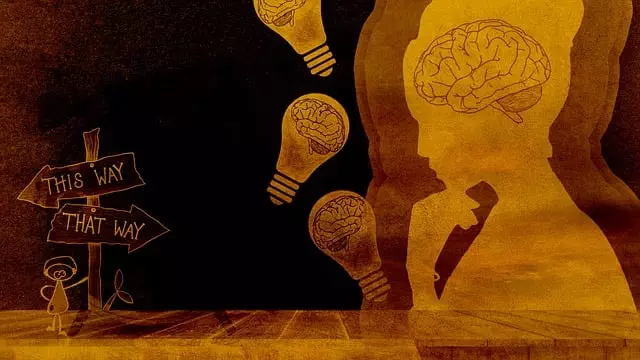Improving Mental Illness Diagnosis Accuracy at Kaiser Permanente Lafayette
The Kaiser Permanente Mental Health Access Center in Lafayette is a pioneering one-stop center for c…….
In the realm of healthcare, accessible and comprehensive mental health services are paramount to fostering well-being on a global scale. At the forefront of this movement is the Kaiser Permanente Mental Health Access Center (MPHAC) in Lafayette, a pioneering initiative aimed at bridging the gap between individuals seeking mental health support and the resources they need. This article delves into the intricacies of MPHAC Lafayette, exploring its inception, operations, impact, and future trajectory. By examining various facets, from its international influence to technological integrations, we aim to provide an insightful panorama for readers interested in understanding this pivotal healthcare center.
The Kaiser Permanente MPHAC in Lafayette is a specialized healthcare facility dedicated solely to mental health services. It serves as a one-stop shop, offering a comprehensive array of resources to individuals across all age groups. The center’s core components include:
MPHAC Lafayette traces its roots back to the early 2000s when Kaiser Permanente, a leading healthcare provider, recognized the growing need for accessible mental health services. With a mission to improve community well-being, they established the first MPHAC in California as a model program. Since then, similar centers have been rolled out across various regions, each tailored to meet the unique needs of their respective communities.
The significance of this initiative lies in several key aspects:
The success of Kaiser Permanente MPHACs has resonated internationally, leading to global interest and adoption. Here’s an overview of its worldwide impact:
While the core principles remain consistent, regional variations cater to unique cultural and socioeconomic contexts:
| Region | Adaptation | Rationale |
|---|---|---|
| Asia | Focus on integrated care with traditional medicine | High demand for holistic treatments and a significant portion of the population relying on alternative practices. |
| Europe | Emphasis on crisis prevention and early intervention | Higher suicide rates in many European countries, emphasizing the need for proactive measures. |
| North America | Strong emphasis on community engagement | Diverse cultural backgrounds and socioeconomic disparities necessitate tailored outreach strategies. |
The economic landscape surrounding Kaiser Permanente MPHACs is multifaceted:
A cost-benefit analysis of Kaiser Permanente MPHACs reveals substantial positive outcomes:
Technology plays a pivotal role in shaping the future of mental healthcare, and Kaiser Permanente has been at the forefront of this digital transformation:
The integration of technology holds immense potential for the future:
The operationalization of Kaiser Permanente MPHACs is guided by a complex web of policies and regulations:
The policy environment plays a crucial role in shaping the centers’ development:
Despite its success, the Kaiser Permanente MPHAC model faces several challenges:
Addressing these issues requires multi-faceted strategies:
Challenge: High rates of youth anxiety and depression in urban areas with limited access to specialized mental health services.
Solution: Kaiser Permanente MPHAC in Los Angeles launched a youth-focused program, “Mindful Teens,” offering group therapy sessions, mindfulness workshops, and parent support groups.
Outcomes:
Context: Remote rural communities in Texas lacked access to mental health professionals, leading to high rates of untreated disorders.
Strategy: The Kaiser Permanente center in El Paso implemented mobile clinics and community-based interventions, partnering with local schools, churches, and community centers.
Impact:
The future of Kaiser Permanente MPHACs is poised for further innovation and expansion:
To capitalize on these trends, the following strategies are recommended:
The Kaiser Permanente Mental Health Access Center Lafayette represents a significant milestone in the global pursuit of accessible, high-quality mental healthcare. Through its comprehensive approach, the center has set a benchmark for others to follow, fostering a culture of mental wellness within communities it serves. As we look ahead, the future of MPHACs is filled with promise, driven by technological advancements, data-informed practices, and a growing global recognition of mental health as a societal priority.
Q: How does Kaiser Permanente ensure cultural sensitivity in its mental health services?
A: Kaiser Permanente centers prioritize cultural competency training for their staff, adapt services to respect diverse cultural beliefs, and engage community leaders from various backgrounds to guide program development.
Q: Are Kaiser Permanente MPHACs accessible to individuals without insurance?
A: Yes, many Kaiser Permanente facilities offer a range of affordable or free mental health services, ensuring accessibility regardless of insurance status. Sliding fee scales are often in place to support those with financial needs.
Q: How does the integration of technology improve mental health outcomes?
A: Technology enhances access, convenience, and personalization. Online platforms provide ongoing support between sessions, while AI assists in initial assessments and treatment planning, leading to improved patient engagement and outcomes.
Q: Can you explain the role of community outreach in Kaiser Permanente’s strategy?
A: Community outreach is vital for raising mental health literacy, reducing stigma, and identifying individuals who may not seek services otherwise. It builds trust and ensures that mental healthcare becomes an integral part of community life.

The Kaiser Permanente Mental Health Access Center in Lafayette is a pioneering one-stop center for c…….